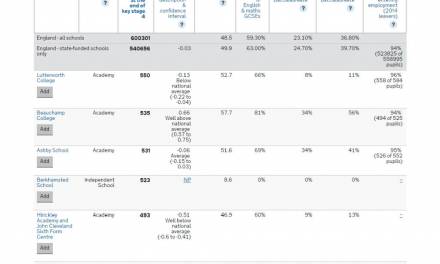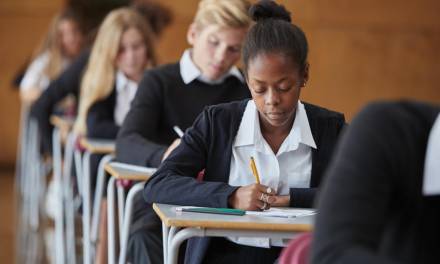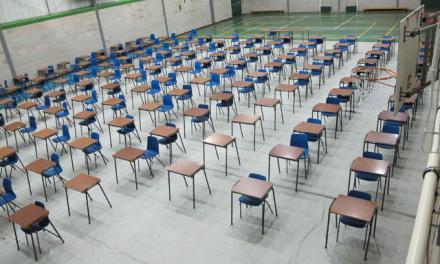The numbers
- This year’s overall A* to C pass rate has suffered its sharpest decline since GCSEs were first sat in 1988, down 2.1 percentage points from 69% in 2015, to 66.9%.
- Noteworthy is the decline in English and Maths – the number of students gaining A*-C in English fell by 5.2% to just 60.2%, and Maths saw a 2.3% drop from last year.
- The proportion of 16 year-olds gaining A*s and As fell by 0.6%. 21.7% of grades were an A or A*, compared to 22.3% in 2015. Overall, A* grades fell by 0.1% to 6.5%.
- Pupils in Northern Ireland impressed with a pass rate of 79.1%. Over 29% of pupils obtained an A grade in contrast to the 20.5% gained by their counterparts in the UK. Commentators suggest selective grammar schools explain these robust results.
Why the fall?
A browse through the many column inches of blame-laying reveals two popular culprits: the new requirement for pupils to resit Maths and English if they don’t secure a grade C in Year 11, and the English Baccalaureate (EBacc).
Resits
Critics argue that grades have been dragged down by the record number of over-16s obliged to retake English and Maths until they obtain a C grade. While numbers of entrants aged 17+ taking Maths GCSE have doubled in two years (from 80,000 to over 160,000), the resit pass rate this year failed to excite, at 27% for English and 30% for Maths.
Sir Kevan Collins, Education Endowment Foundation chief executive, questions this policy: ‘Simply keeping those teenagers in compulsory education for another year is not enough to ensure they leave with the skills they’ll need.’ And he’s not alone. The barrage of criticism was further boosted by Mark Dawe, former head of the OCR exam board and chief executive of the Association of Employment and Learning Providers, said: “This is evidence enough that hitting students over the head with the same form of learning and assessment is not the way forward.”
Retakes have impacted negatively on results because the pass rate is far lower among resitters than among those taking GCSEs for the first time. Only 35.9% of entries from pupils aged 17+ scored an A* to C, compared with 69.5% of entries from 16-year-olds.
EBacc
Also attracting blame is the EBacc, which measures schools’ performances through achievement in ‘core’ GCSEs, thereby narrowing pupils’ options to include subjects that don’t work well for every learner. Pupils are encouraged to take ‘traditional’, ‘academic’ subjects, even if their strengths lie in technological and/or creative disciplines.
NAHT general secretary, Russell Hobby, agrees that the EBacc has contributed to falling grades. “GCSE entry data implies that the EBacc is narrowing the curriculum for many,” he notes. “Entries to design and technology have decreased by 10%, art and design by 6%, music by 5% and drama by 4. We ask the government to look again at the aim that 90% of students must be entered for EBacc – unless they are prepared to value a wider range of rigorous subjects.”









